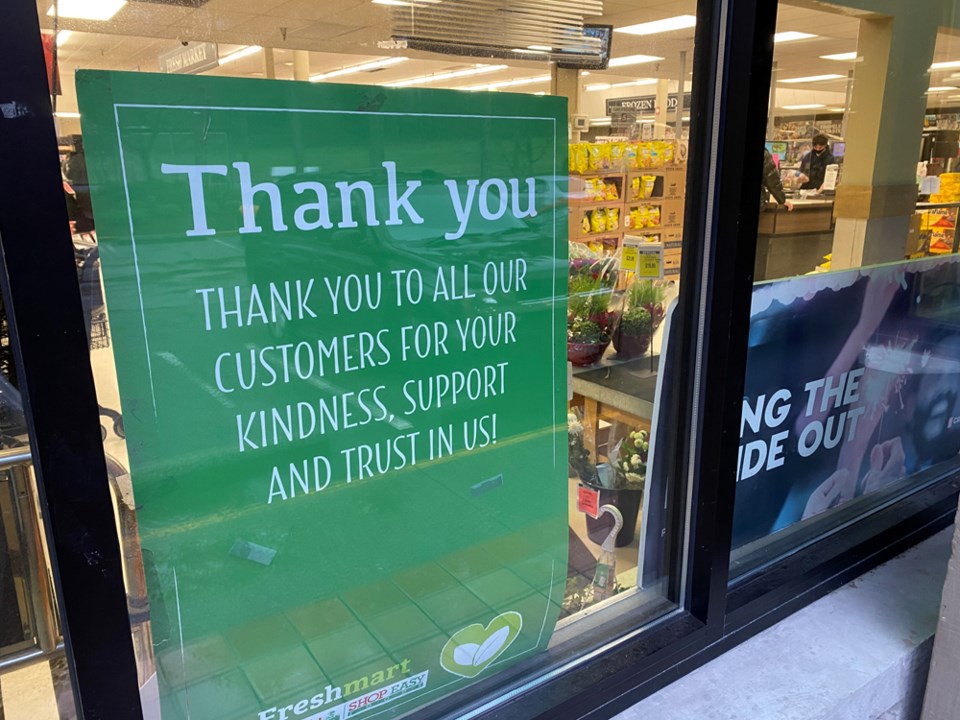Shoppers at a North Burnaby grocery store were in shock Tuesday as word spread that it was closing its doors forever in February.
The Greystone SuperValu at the base of Burnaby Mountain is shutting down after the grocery company it was affiliated with, Loblaws, didn’t renew the lease, one of the owners told the NOW. With no larger company backing it, the owners decided to close the store down.
Many Burnaby businesses have closed their doors during the pandemic, but few as large as a supermarket. Now, along with SuperValu, the Independent grocer on North Road on the Burnaby-Coquitlam border, is also closing down forever this week.
“It’s a real loss,” said Tina K. on Tuesday as she finished her shopping. “It hits hard. I’ve been shopping her for years. They are convenient and the staff are really wonderful.”
The area has a lot of families as well as seniors living near the SuperValu, with loyal customer base.
“For seniors who don’t drive, this was the place they shopped,” said John, who has been shopping at this location for five years. “Where are they going to get their groceries now? I hope another grocery store moves in here, but who knows?”
Customers were hugging staff on Tuesday as they all discussed the closure in the check-out lineup.
The closure comes as food prices in Canada are expected to surge to record highs next year as ongoing pandemic-fuelled supply chain disruptions, labour market issues and adverse weather events drive up grocery bills, a new report on food prices says.
The 12th edition of Canada's Food Price Report released Thursday predicts the average Canadian family of four will pay an extra $966 for food in 2022, for a total annual grocery bill of $14,767.
That's a seven per cent increase compared with 2021 — the biggest jump ever predicted by the annual food price report.
“It’s absurd,” said Rita R., who spoke to the NOW at the Burnaby Heights Safeway. “It doesn’t seem to matter what store I go to, the prices are outrageous. My income certainly hasn’t gone up to meet these higher prices. And now they’re going to continue to skyrocket?”
“I’m in shock by what I’ve been seeing,” said Sherry T., who was interviewed outside of the Real Canadian Superstore at Metropolis at Metrotown. “I have several kids to feed and now we’re cutting back on lots of other stuff to ensure we can afford groceries.”
Soaring food costs are expected to contribute to rising food insecurity in Canada, putting increasing demands on food programs intended to help, the report said.
"What is being challenged right now is food affordability," said Sylvain Charlebois, lead author and Dalhousie University professor of food distribution and policy. "It's not going to be easy for families or anyone already struggling to put food on the table."
A growing phenomenon related to rising food insecurity is theft from grocery stores, the report said.
"Grocers are anecdotally reporting an uptick in theft, particularly of items such as meat, cheese, over-the-counter medication and energy drinks," the report said.
Overall, food prices in Canada will increase five to seven per cent next year, the report said.
- With files from the Canadian Press

